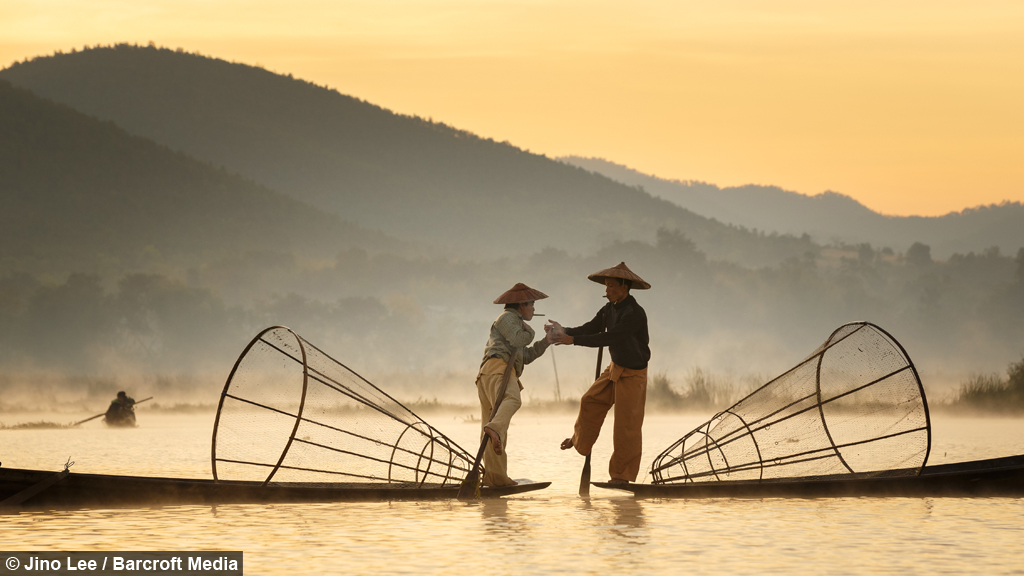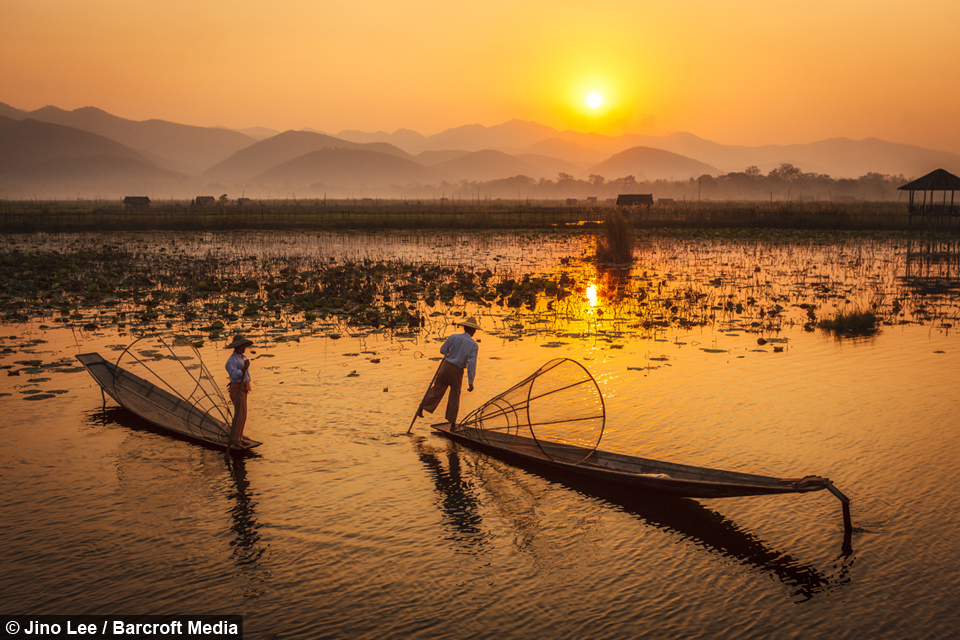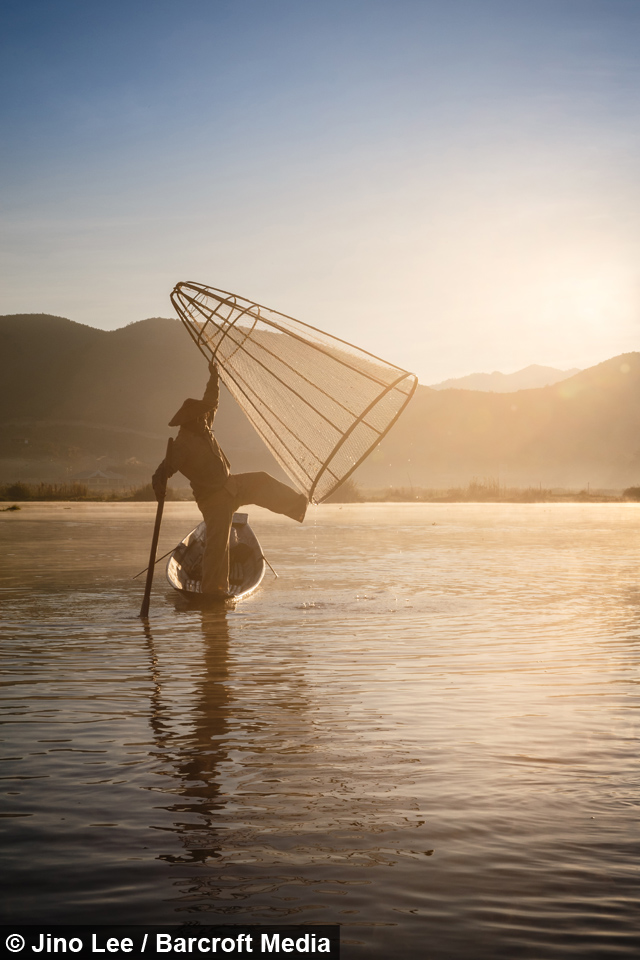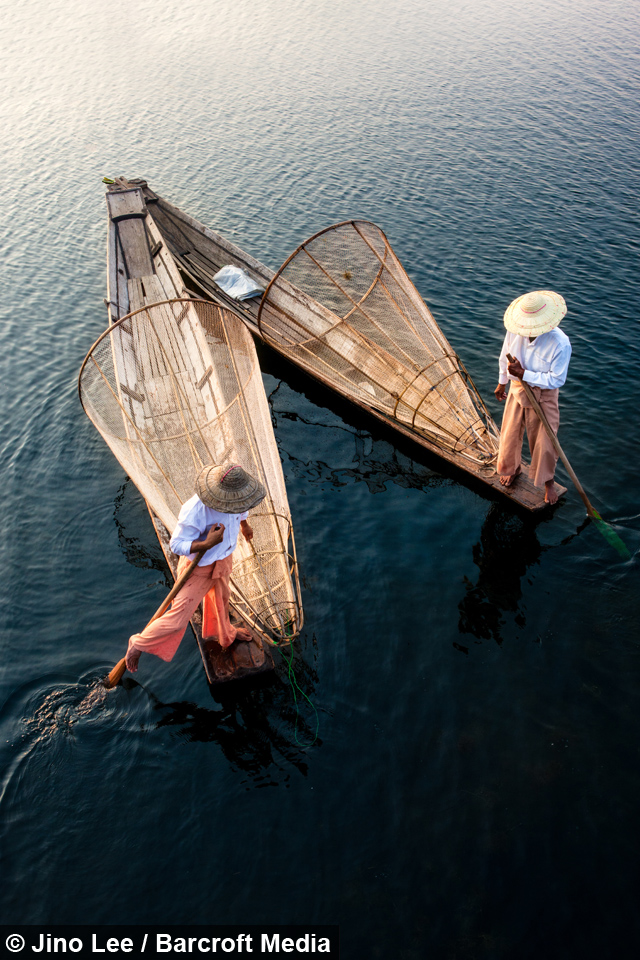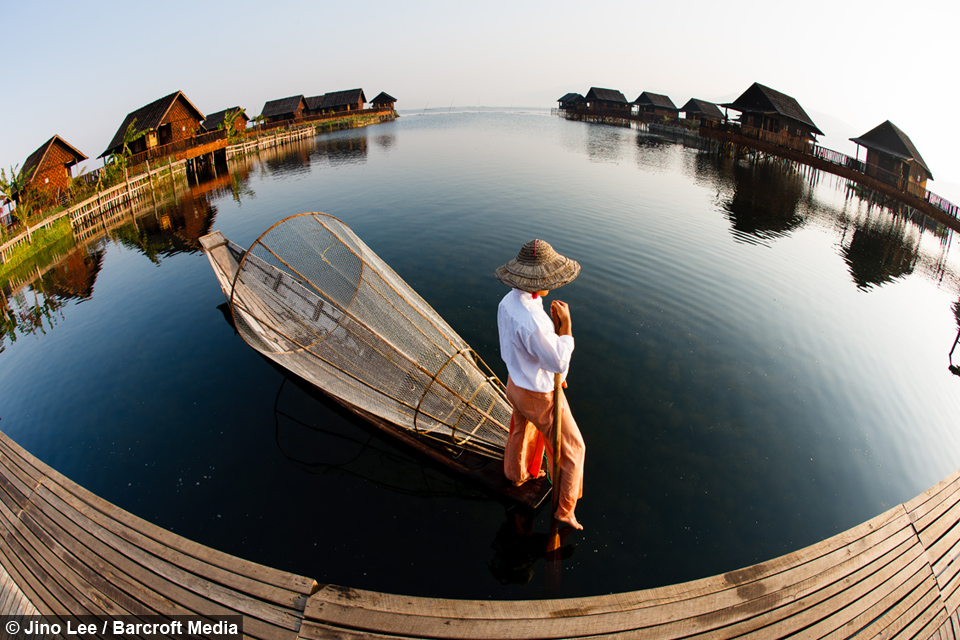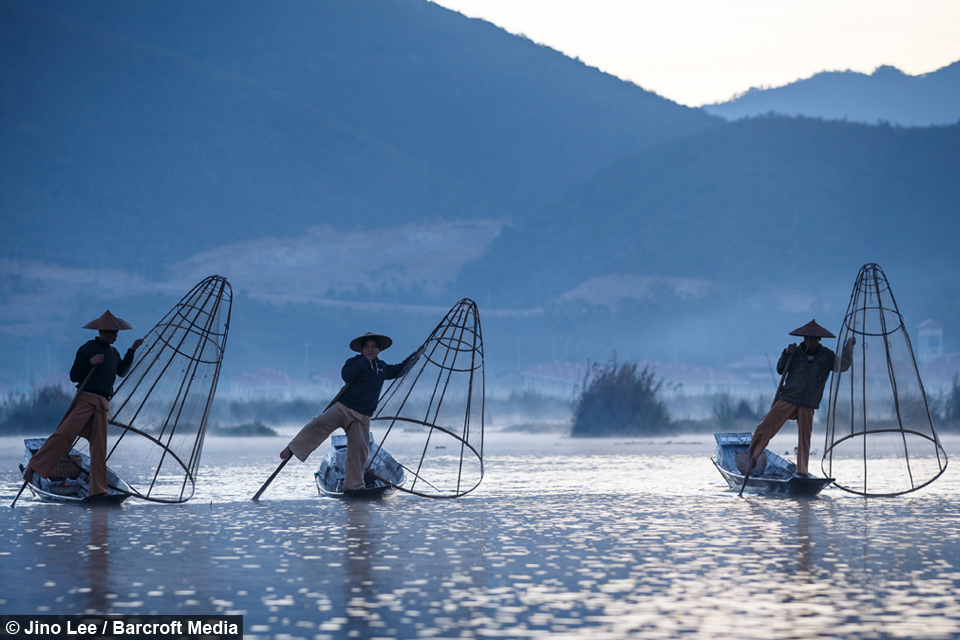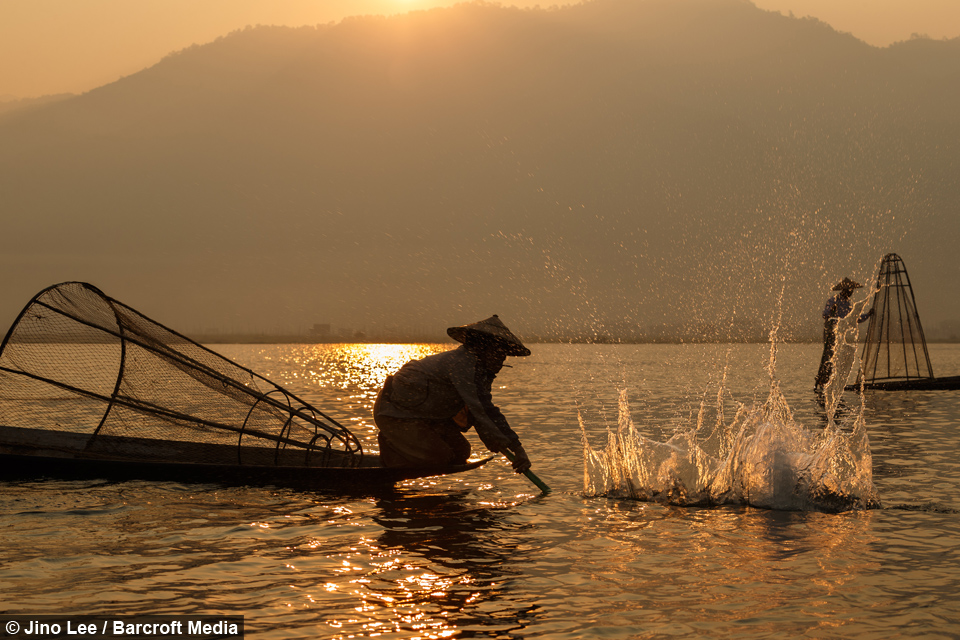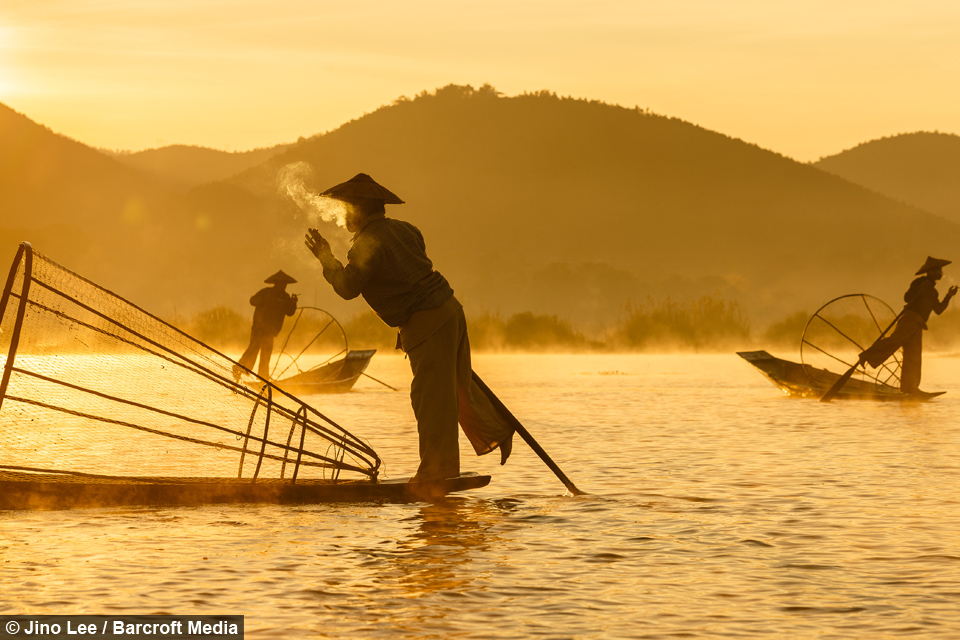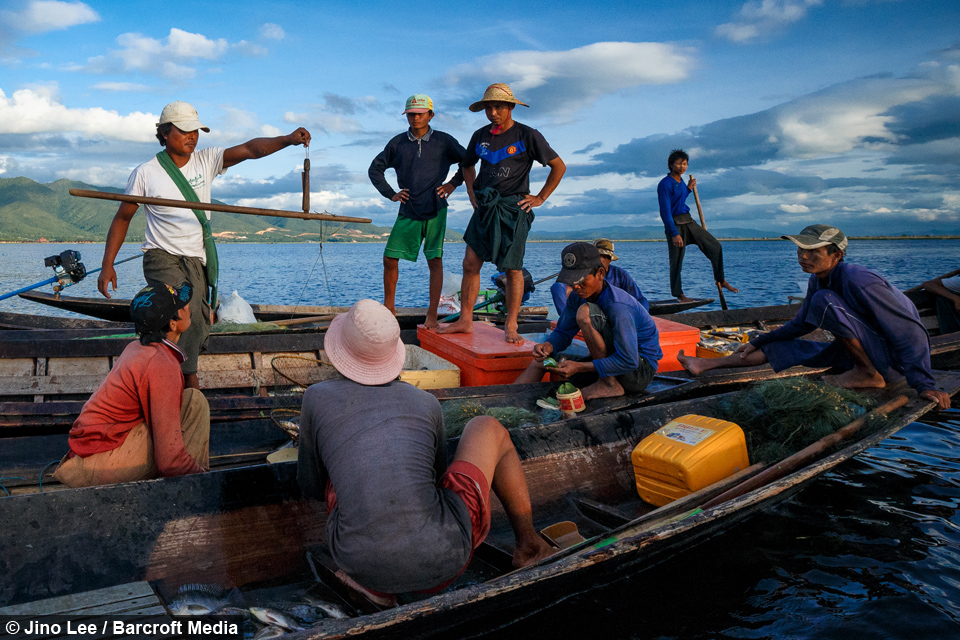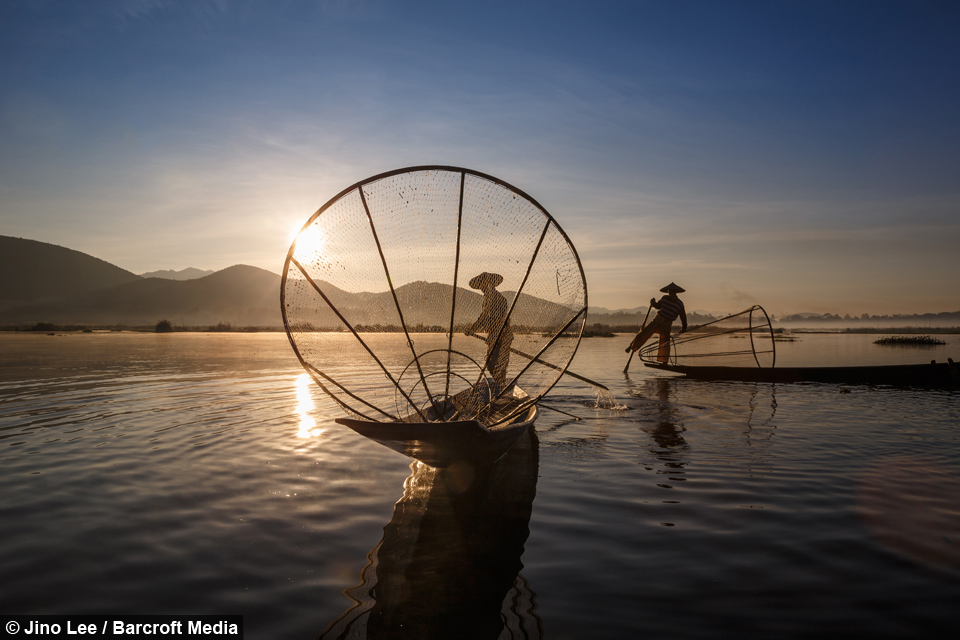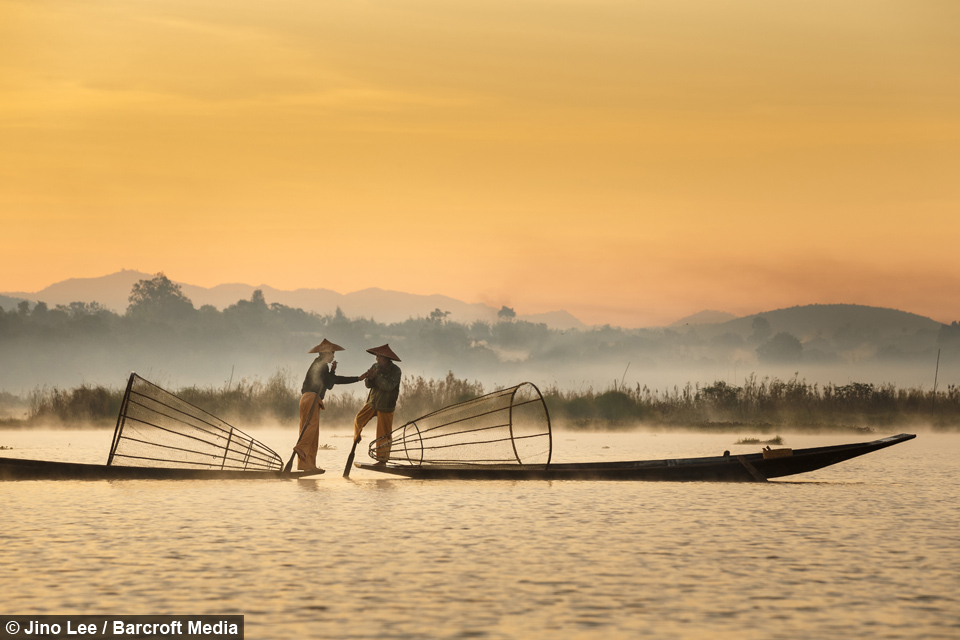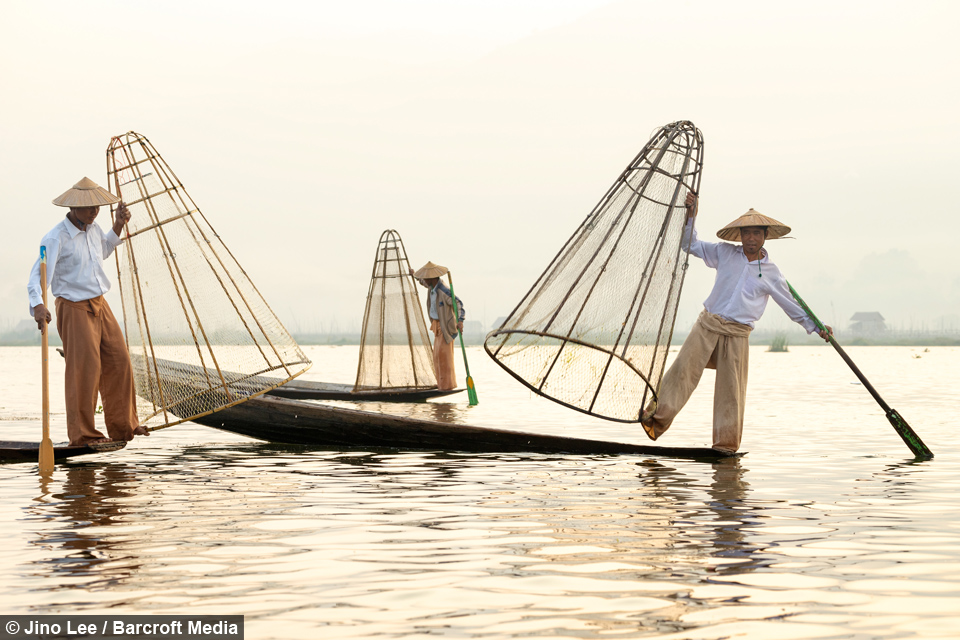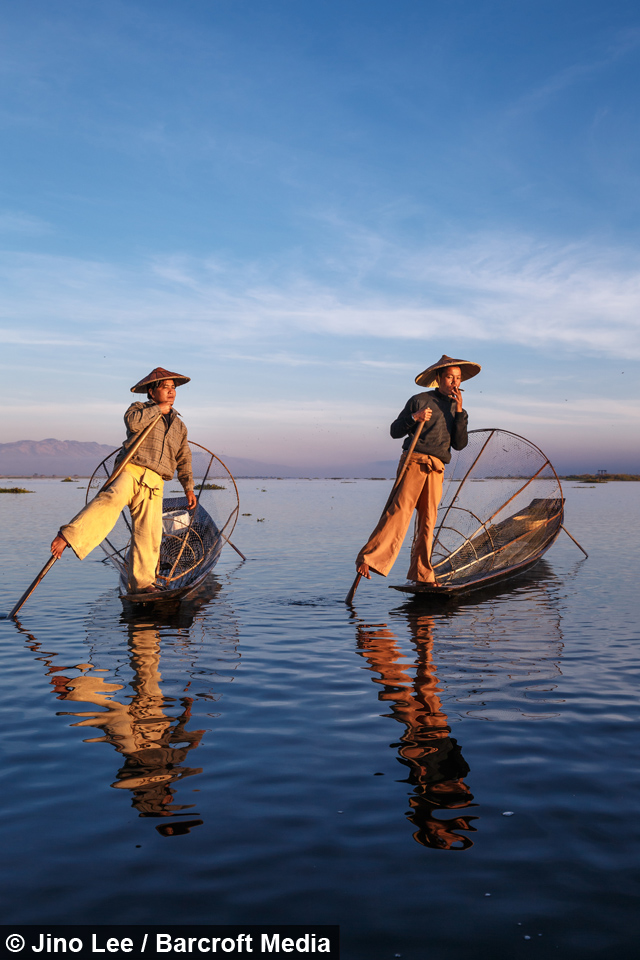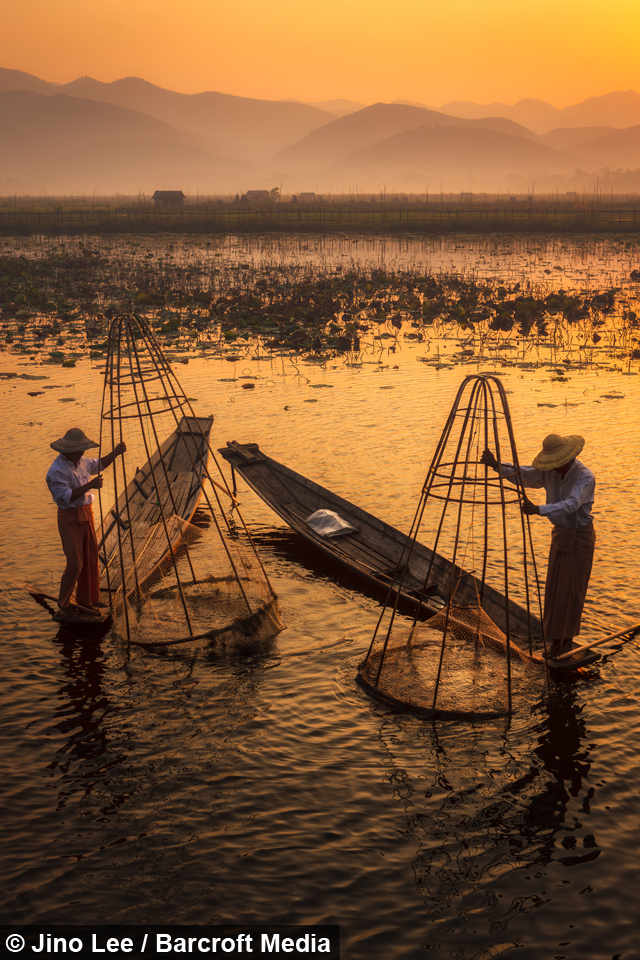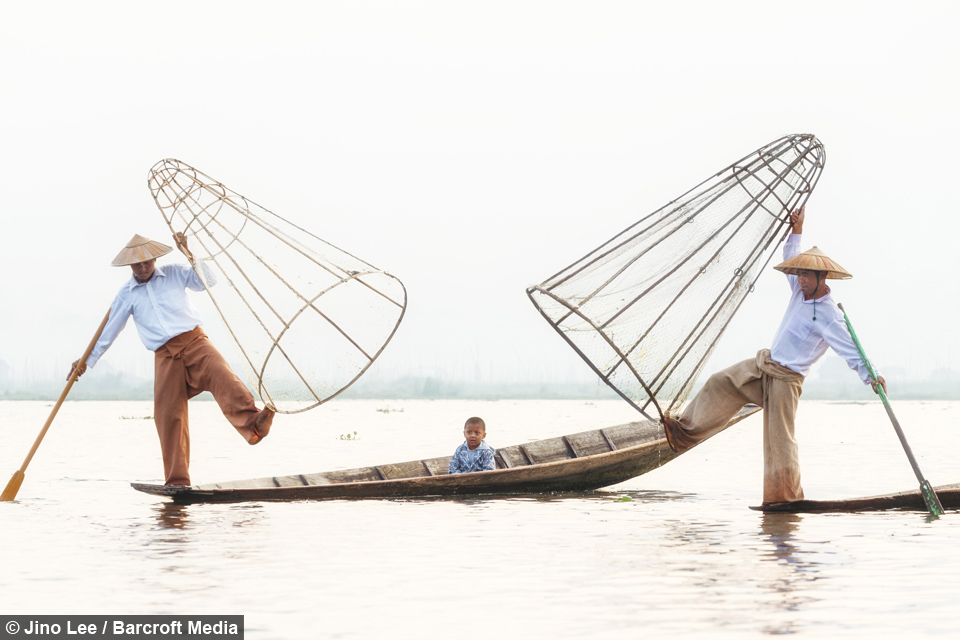Vanishing trade: Burma’s traditional one-legged Intha fishermen of Inle Lake
By Crystal Chung @crystalkchung
Scroll down for the full story
Using just one leg to balance on the front of the boat, they guide their conical nets with the other leg.
Shot by 48-year-old professional photographer Jino Lee, the breathtaking images show the Burmese fishermen at work on the freshwater lake.
The skilled technique means the fishermen can stand and look out for reeds and keep their hands free to hold the oar and fish the cumbersome nets out of the water.
The fishermen start their day on the lake just before dawn to catch fish that is later sold at the markets.
Jino visited Inle Lake in the Taunggyi District of Shan State, Myanmar, also known as Burma, in 2015.
He said: “It is a very unique way of fishing, the men use a cone shape net which they plunge to the bottom of the lake to trap fish.
“They then row their boats with one leg while standing at the tip of the boat. It is something that is so unique and you can only find them in Inle Lake and nowhere else in the world, not even in other parts of Myanmar.”
The fishermen are a symbol of Inle Lake, with the men in the region learning how to fish at the age of 13 and retiring at around 75 years old.
Inle Lake is the second-largest in Burma and the fishermen have become a real draw for the many tourists.
The people of the lake, known as Intha, live in four towns and a series of tiny villages scattered along the shore.
Lee said: “They are very popular among photographers and tourists. The fishermen are a huge symbol and icon of Inle Lake.
"They are quite used to being photographed, so they carry on doing their own thing and they’re very friendly and obliging too.”
Sadly, the fishermen's way of life is under threat as the lake is becoming smaller due to floating garden agriculture and silt washed down from slash and burn techniques in the surrounding hills, which are reducing the size of the lake.
Jino said: “Back in 2009, when I first visited Inle Lake, there were so many fishermen and it was very easy to spot one. However in 2015, I hardly saw any of them.
“Most of them have reverted to using motorboats and vast netting, just like any other “modern” fishing method used by fishermen in majority of Asia.
“Some of them today will dress up and give a performance to tourists for some extra income. I guess that’s the price to pay for modernisation and economic growth.
"I can’t imagine how it would be to return to Inle Lake one day and not see any of the traditional fishermen.”
